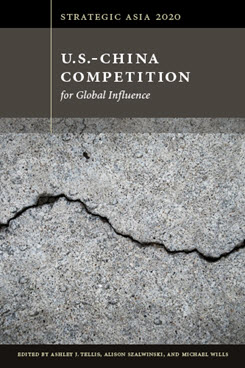U.S.-China Competition in the Western Hemisphere
This chapter analyzes how bilateral tensions between the U.S. and China have played out in the Western Hemisphere.
EXECUTIVE SUMMARY
MAIN ARGUMENT
Since 1978, China has been exporting manufactured goods to Latin America, and the latter sends back a rich array of raw materials to China. This cross-Pacific trade exploded upon China’s 2001 entry into the World Trade Organization. Nevertheless, the core of China’s relationship with Latin America is developmental in nature, something that Washington needs to grasp. The U.S. has adopted a hard-power narrative toward China’s rising presence in the Americas, while Chinese soft power is the glue that binds the China–Latin America relationship. The U.S. towers over China in terms of trade and investment inflows to the Americas, while U.S.-China military competition in the region is negligible. In terms of the impact on specific countries, Canada and Mexico have been most adversely affected by U.S.-China competition.
POLICY IMPLICATIONS
- The U.S. needs to rely less on a hard-power narrative and harsh language about the evolving relationship between China and the countries of Central and South America. This discourse fails to capture the nature of China’s ties with Latin America and drives possible allies further from the U.S.
- The U.S. insistence on renegotiating NAFTA in a mercantilist mold was misplaced. The new U.S.-Mexico-Canada Agreement puts the automobile sector most at risk, as content requirements that favor the U.S. market will disrupt regional value chains and disadvantage this sector at large.
- Rather than seeking to compete with China’s Belt and Road Initiative, the U.S. needs to work with the Latin American countries to strengthen business practices (especially contract negotiations, transparency, and the rule of law) such that the initiative becomes a positive developmental force in the Americas rather than an economically destabilizing one.
Carol Wise is Professor of International Relations at the University of Southern California.
Strategic Asia
The Strategic Asia annual edited volume incorporates assessments of economic, political, and military trends and focuses on the strategies that drive policy in the region. Learn more about Strategic Asia.



